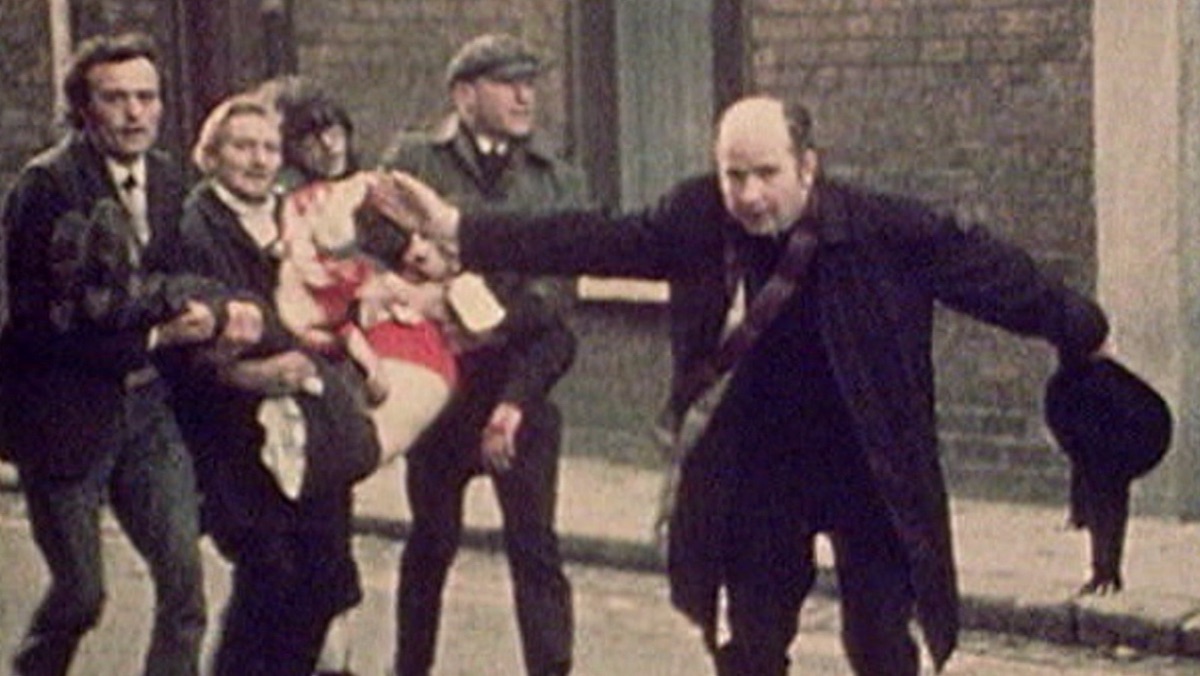
Aontú leader Peadar Tóibín has threatened to name all the British soldiers who murdered civilians on Bloody Sunday if a controversial legacy bill is passed in Britain.
The Meath West TD Peadar Tóibín said his party will be left with little choice if the proposal, which draws a line under prosecutions for killings in the conflict, including war crimes of the British state, becomes law.
“It’s a grossly unjust bill that will deny truth and justice from families that have battled, in certain cases, for half a century to find out why and how their loved ones were murdered,” he said.
“It would be a gross injustice for these families if the perpetrators of these murders are allowed to die in anonymity.
“If the bill passes, we would have no choice but to put the names of the [people who perpetrated the] murders on Bloody Sunday into the public domain by putting them on the record in Leinster House.”
Fourteen unarmed civilians died and a similar number were injured as a result of a massacre perpetrated by British paratroopers during a nationalist demonstration against internment in Derry in 1972.
Mr Tóibín has previously publicly named Soldier F, who was accused of five of the killings.
All of the parties in the North, as well as the Dublin government, have already condemned the “Northern Ireland Troubles (Legacy and Reconciliation) Bill”, which is currently being considered by the ‘House of Lords’ at Westminster.
The real purpose of the bill, instigated by former British Prime Minster Boris Johnson, is to provide full impunity for the British Crown Forces for their actions in Ireland.
“It would allow British state forces to get away with murder,” Mr Tóibín said.
“It is contrary to human rights law and is a threat to the Good Friday Agreement. These families have suffered so much for so long to get to the truth.
“In many cases the battle has become inter-generational, with grandchildren now leading campaigns for the truth.
“It is clear to me that this amnesty bill is a direct continuation of the British state policy to murder these people and to cover it up at the time.
“Fifty years and more may have passed in some cases, but the same unlawful instincts are front and centre in the British approach.”
Irish politicians have met with members of the US Congress in Washington DC, as well as with MPs and Lords in London to try and create as much pressure as possible “to make the British government see sense”, Mr Tóibín said.
“Aontú has also urged the Government to go on the record that they will bring the British Government to the European Court of Human Rights if the British proceed with this Bill,” he said.
He added that an outcome of the legislation would be that, in all the massacres the British government was involved in, the names of the murdered would be known but the names of their murderers would not.
“Naming alleged murderers in the Dáil would not be something that I would normally countenance. A court of law is the place where evidence is weighed up,” said Mr Tóibín.
“Naming alleged murderers could also be used by the defence as potentially damaging the right to a fair trial. In a liberal democracy, an accused has the right to be presumed innocent until proven guilty in a court.
“But a normal liberal democracy does not murder its citizens. A normal liberal democracy does not give an amnesty to those murderers. A normal liberal democracy does not pass a law such as this.”
Family members of the Bloody Sunday victims have pledged to work with other victims’ groups around the world to oppose the British government’s amnesty plan.
Bloody Sunday Trust chairman Tony Doherty said London was determined there would be no more investigations, inquests or court cases against its soldiers over their actions anywhere of the world.
Mr Doherty, whose father Patrick was among the victims, said the Legacy Bill meant there would be “no justice” for families in the North – but he also cited the actions of British forces in Malaya in 1948 and Bangladesh in 1922.
This year’s Bloody Sunday commemoration would remember British atrocities “across the globe and across the centuries”, he said.
He also said the Bloody Sunday families still hoped to bring former soldiers responsible for the killings of their loved ones to justice. He was speaking at the launch of a commemoration programme marking the 51st anniversary of the atrocity.
Among the events organised by the Bloody Sunday Trust will be the annual lecture to be delivered by Sinn Féin leader Mary Lou McDonald at Derry’s Guildhall on January 27.
Human rights’ lawyer Gareth Peirce will take part in a panel discussion on Britain’s proposed legacy legislation at Derry’s Cultúrlann on January 28.
The annual Bloody Sunday anniversary Mass will be held at St Mary’s Church in Creggan on January 27 with the annual remembrance service at the Bloody Sunday Monument, Rossville Street on January 29.
A minute’s silence will be held at the monument at 4pm on January 30.
![[Irish Republican News]](https://republican-news.org/graphics/title_gifs/rn.gif)
![[Irish Republican News]](https://republican-news.org/graphics/title_gifs/harp.gif)

